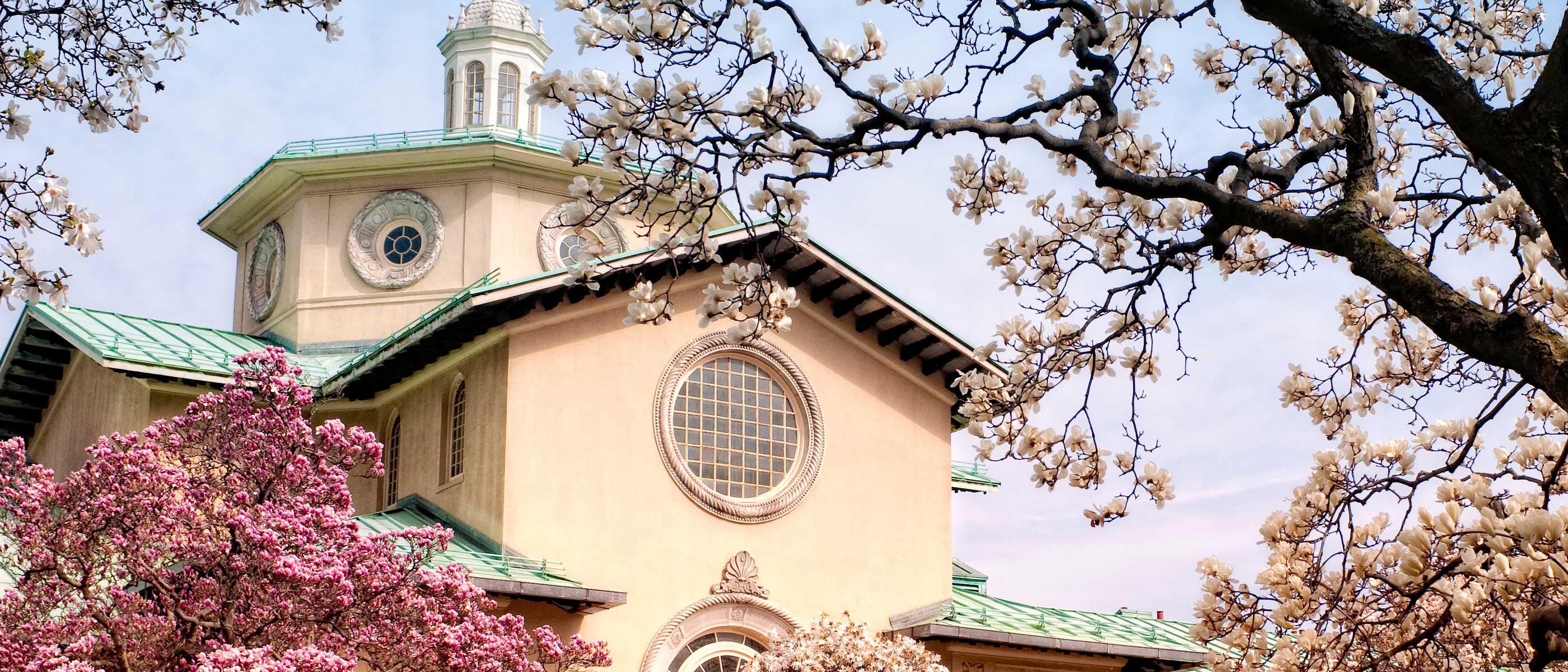As a New York City kid in the 1980s, Onika Abraham saw nature incorporated into the urban environment in all sorts of ways—the community gardens in her neighborhood, her mother’s terrace garden, and the stream at BBG where she caught tadpoles. Today she is the director of Farm School NYC and a passionate advocate for organic practices and social justice. She recently chatted with BBG about how important community and cultural heritage are to the sustainable urban gardening and farming movement.
A lot of people are probably surprised to learn that enough farming takes place in the city to keep your organization, Farm School NYC, busy offering more than 20 different courses in urban agriculture.There is actually a lot of space in the city devoted to growing food. One of our instructors comes from Brooklyn Grange, a one-acre rooftop farm in Long Island City. There are big farms, too, like the 47-acre farm at the Queens County Farm Museum. And of course there are many, many people doing wonderful work in smaller plots in community farms and gardens, like the Hattie Carthan Community Garden in my neighborhood, Bed-Stuy. Farm School is a way of connecting people from a lot of different places and backgrounds so that they can share knowledge as part of comprehensive, professional training.
How else can urban farmers find good information about sustainable growing practices?
It’s also important to look back and connect what we do now with our heritage, with our own family histories. When I first started learning about organic farming, I was taught that the idea was born in England in the 1940s, but when you start looking at the history of techniques like composting and rain catchment systems, you see that the underpinnings were there much earlier in non-European cultures—in India, and parts of Asia and Africa. A lot of that history gets lost when we look at sustainability now, but it's really important to stop and give credit to the people who came before us.
That seems especially valuable for city dwellers. It's sometimes easy to lose sight of any connection our families may have had to agriculture.
Yes, I’m a native New Yorker, but my parents both grew up on farms—my mother in Alabama and my father in the West Indies. Their childhoods were so different from mine, yet they instilled in me a real love of the natural world. Even though we lived on the 18th floor of a high-rise on the Lower East Side, my mother always grew plants in containers on the terrace. And at that time—in the ’80s and ’90s—the community garden movement was really active in my neighborhood. There were small gardens all over the Lower East Side then. And I used to drag my family to Brooklyn Botanic Garden—I loved the stream! The garden was like a sanctuary to me. So even in the city, you can always find ways to connect with nature, especially if you think of it as part of your heritage.
Onika Abraham will deliver the keynote address, “Organic: Our Origins, Our Stories,” at Making Brooklyn Bloom on Saturday.


